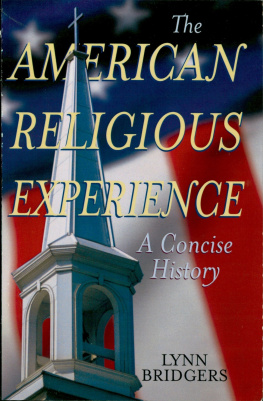Lynn - The Science of Human Diversity : A History of the Pioneer Fund
Here you can read online Lynn - The Science of Human Diversity : A History of the Pioneer Fund full text of the book (entire story) in english for free. Download pdf and epub, get meaning, cover and reviews about this ebook. year: 2001, publisher: Lanham, MD : University Press of America, genre: Detective and thriller. Description of the work, (preface) as well as reviews are available. Best literature library LitArk.com created for fans of good reading and offers a wide selection of genres:
Romance novel
Science fiction
Adventure
Detective
Science
History
Home and family
Prose
Art
Politics
Computer
Non-fiction
Religion
Business
Children
Humor
Choose a favorite category and find really read worthwhile books. Enjoy immersion in the world of imagination, feel the emotions of the characters or learn something new for yourself, make an fascinating discovery.
- Book:The Science of Human Diversity : A History of the Pioneer Fund
- Author:
- Publisher:Lanham, MD : University Press of America
- Genre:
- Year:2001
- Rating:5 / 5
- Favourites:Add to favourites
- Your mark:
- 100
- 1
- 2
- 3
- 4
- 5
The Science of Human Diversity : A History of the Pioneer Fund: summary, description and annotation
We offer to read an annotation, description, summary or preface (depends on what the author of the book "The Science of Human Diversity : A History of the Pioneer Fund" wrote himself). If you haven't found the necessary information about the book — write in the comments, we will try to find it.
Lynn: author's other books
Who wrote The Science of Human Diversity : A History of the Pioneer Fund? Find out the surname, the name of the author of the book and a list of all author's works by series.
The Science of Human Diversity : A History of the Pioneer Fund — read online for free the complete book (whole text) full work
Below is the text of the book, divided by pages. System saving the place of the last page read, allows you to conveniently read the book "The Science of Human Diversity : A History of the Pioneer Fund" online for free, without having to search again every time where you left off. Put a bookmark, and you can go to the page where you finished reading at any time.
Font size:
Interval:
Bookmark:
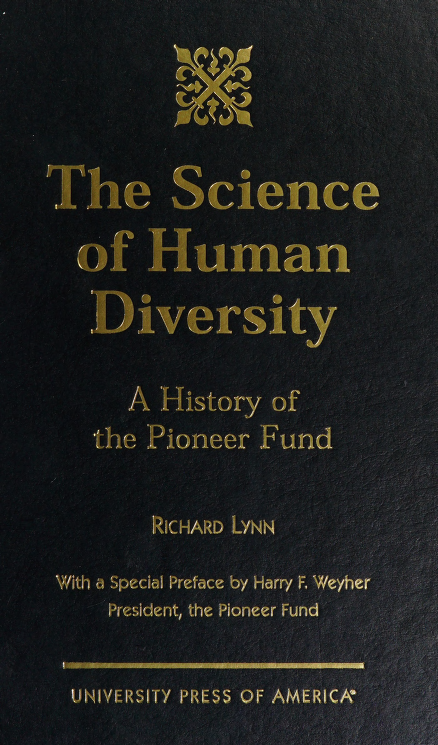
This book was produced in EPUB format with abbyy2epub (v.1.7.6) by the Internet Archive. The book pages were scanned and converted to EPUB format automatically. This process relies on optical character recognition, and is somewhat susceptible to errors.
Further edited by killerpascals@gmail.com with Sigil open-source editor:
-Page numbers removed from scan pages
-Table of contents converted to EPUB format
-Italics, superscripts and blockquotes added for titles references, footnotes and quotes
-Text formatted to be faithful to original book
-Photographs sourced and added to match original book
-Some typographical errors corrected
Digitized by the Internet Archive in 2020 with funding from Kahle/Austin Foundation
https://archive.org/details/scienceofhumandiOOOOIynn
With a Special Preface by Harry F. Weyher
President, the Pioneer Fund
University Press of America, Inc.
Lanham New York Oxford
Copyright 2001 by University Press of America, Inc.
4720 Boston Way Lanham, Maryland 20706
12 Hid's Copse Rd.
Cumnor Hill, Oxford OX2 9JJ
All rights reserved
Printed in the United States of America British Library Cataloging in Publication Information Available
Library of Congress Cataloging-in-Publication Data
Lynn, Richard.
The science of human diversity : a history of the Pioneer Fund / Richard Lynn ; with a special preface by Harry F. Weyher.
p. cm
Includes indexes.
1. Pioneer Fund (Foundation)History.
2. EugenicsResearchUnited StatesHistory.
3. Intelligence levels. 4. Race. 5. Heredity, Human. I. Title. HQ755.5.U5 L96 2001 363.920720973dc21 2001027579 CIP
ISBN 0-7618-2040-X (cloth : alk. paper)
ISBN 0-7618-2041-8 (pbk. : alk. paper)
'S' The paper used in this publication meets the minimum requirements of American National Standard for Information SciencesPermanence of Paper for Printed Library Materials,
ANSI Z39.481984
On 22 November 1994 ABC's World News Tonight with Peter Jennings was replete with somber voices speaking of a small penis being a "sign of superior intelligence," "eradicating inferior people," arresting blacks solely because of skin color, race superiority, and mentally ill Jews. This voice-over was spiced with references to Hitler and scenes of emaciated victims in Nazi death camps.1
I watched this broadcast with more than usual interest, because I was president of the foundation which was the subject of the broadcast, the Pioneer Fund. Fearing such tabloid treatment, I had refused repeated invitations from ABC to appear on tape for the program.2 My fears were justified. What I saw was a grotesque distortion, akin to what one used to see in fun house mirrors.
The ABC broadcast was one of an endless series of attacks on Pioneer and the scientists whom it has funded, dating back almost 50 years, most often by making baseless charges of "Nazism" or "racism," thus sometimes inciting student unrest or faculty reaction. The following also has happened to Pioneer and these scientists: One scientist had to be accompanied by an armed guard on his own campus, as well as guarded in his home. Another scientist was required by the university to teach his classes by closed circuit television, supposedly in order to prevent a riot breaking out in his class. Several scientists had university and other speaking engagements canceled or interrupted by gangs of students or outside toughs. Two scientists asked that all professional communications go to their offices and not their homes since their wives were frightened by the abuse their work engendered. Two scientists who had speaking engagements in Australia needed 50 policemen to rescue them from a mob. At one major university a professor invaded the class of another professor, led a raucous demonstration there, and had to be removed by campus police. The son of one of Pioneer's directors agreed to succeed his father on the Pioneer board, but then withdrew when the son's wife objected, citing social ostracism and physical danger.
This was not all. One state university temporarily barred its scientists from doing any research with grants from Pioneer. Another major university retained a large Boston law firm to investigate Pioneer before allowing its scientists to use Pioneer grants. The TV show "Inside Edition" tried to do an ambush interview of Pioneer's president (this writer) at his law office, and then staked out his apartment, questioning his neighbors at random. Media attacks along the same lines as the Peter Jennings attack were all too common.
How was all of this commotion generated around a tiny foundation whose only activities had consisted of (a) a 1937 study of family size of Air Corps pilots and the giving of some scholarships to the children of those pilots, and (b) hands-off grants for research into human nature at about 60 institutions scattered around the world in eight countries?
This book by Professor Richard Lynn tells the true story of the Pioneer Fund.3 It needs no introduction, but at his request I will add a few personal observations about some of the main events and about the human side of just a few of the people. What I know firsthand about this history is at odds with the media distortions, which unfortunately constitute the only information that many people have.
My role in all of this began in 1951 when I was a young lawyer. My employer law firm, Cravath, Swaine & Moore, asked me whether I would like to be loaned by them to John M. Harlan for work on a temporary crime commission appointed by Governor Thomas E. Dewey. Harlan, later to become a distinguished justice nominated to the United States Supreme Court by President Eisenhower (and grandson of a former Supreme Court justice of the same name), was then known as a rising star among Wall Street lawyers, and I was enormously flattered by the opportunity. I spent two years with him and learned that he was indeed a star, a megastar. Later I learned about the Pioneer Fund, and that Harlan was one of its founders.
Then in 1954 I met Wickliffe Preston Draper, another founder of the Pioneer Fund and its chief, although not the only, benefactor. I had completed my work with Harlan and had accepted an offer to join a start-up law firm with two other young ex-Cravath lawyers, where I worked as a corporate and tax lawyer during most of the years recounted here. As luck would have it, Cravath at that time received a query from Draper about retaining a lawyer, and they recommended me. When I met Draper, who was usually addressed as "Colonel Draper," I found him to be highly intelligent, learned, physically impressive, unselfishly patriotic the same traits I saw in Harlan. We got along famously over the years, and eventually I was handling all of his legal affairs.
In 1958 Draper and Henry R. Guild, a prominent Boston attorney and a director of Pioneer for 26 years, asked me whether I would join the board and become president. By then I knew most of Pioneers history, and knowing and respecting Draper and Guild and being in awe of Harlan, I immediately accepted. From the mid-1950s until his death in 1971, Draper had me present at all his meetings (not just Pioneer meetings) except rare meetings with a family member or college chum. I also became sole trustee of Draper's inter vivos trust and executor of his will. I like to think that I became his closest and most trusted friend, and I have always tried to be true to that trust. As to Pioneer, I tried to carry on in the way I think would have been wanted not only by Draper, but also by General Frederick Osborn, Justice Harlan and the others who preceded me as Pioneer directors and officers.
Font size:
Interval:
Bookmark:
Similar books «The Science of Human Diversity : A History of the Pioneer Fund»
Look at similar books to The Science of Human Diversity : A History of the Pioneer Fund. We have selected literature similar in name and meaning in the hope of providing readers with more options to find new, interesting, not yet read works.
Discussion, reviews of the book The Science of Human Diversity : A History of the Pioneer Fund and just readers' own opinions. Leave your comments, write what you think about the work, its meaning or the main characters. Specify what exactly you liked and what you didn't like, and why you think so.

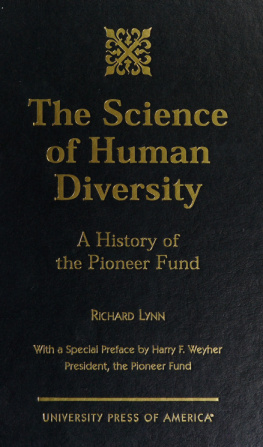
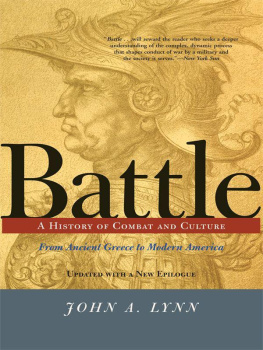

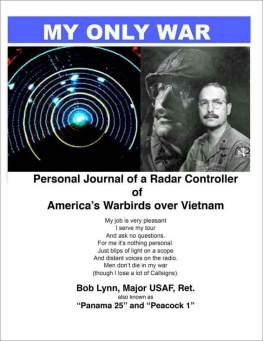


![William Richards - The History of Lynn, Vol. 1 [of 2]](/uploads/posts/book/431254/thumbs/william-richards-the-history-of-lynn-vol-1-of.jpg)

